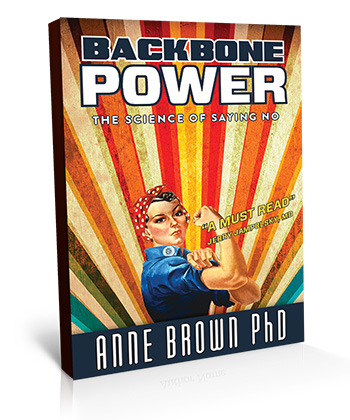
In Part I, we identified some areas of concern for the codependent during these contentious times. Now let’s look at some possible tools for the codependent to use.
If you haven’t done your codependent work, now is the perfect time to begin. With social media, you can practice taking a stand for what is important to you. Post articles you think are important for people to read. Stand up to people who post contentious comments.
Let’s Talk Solutions
We, as a society, need to learn to discuss and debate – not hate and kill. We need to read lots of sources, get different points of view, and engage respectfully with one another. Lean into this crisis and let’s all be better people, vibrate at a higher level if you relate to the spiritual discourse, and make our world a place where we all care about each other.
Now let’s look at practical solutions for the five areas of concern we addressed in Part I.
- Anxiety
 If you don’t have spiritual practices, I highly recommend you develop some today. Start a meditation practice, a yoga practice, a prayer practice, a journal practice, or whatever works for you to quiet your mind naturally. The quieter our minds, the better we will negotiate these turbulent waters. These are intense times which I believe need to be met with strong, quiet minds. Make sure you have physical ways to discharge your anxious energy, but also make sure you have ways to get quiet when you need to. Think of the mind like your bicep. When you need it, you want it to be strong. Getting your bicep and/or mind strong takes practice and repetitions. Practice, practice, practice! Meditation/yoga practice and physical activity are great ways to counter anxiety. If you still need help with your anxiety, consult a professional.
If you don’t have spiritual practices, I highly recommend you develop some today. Start a meditation practice, a yoga practice, a prayer practice, a journal practice, or whatever works for you to quiet your mind naturally. The quieter our minds, the better we will negotiate these turbulent waters. These are intense times which I believe need to be met with strong, quiet minds. Make sure you have physical ways to discharge your anxious energy, but also make sure you have ways to get quiet when you need to. Think of the mind like your bicep. When you need it, you want it to be strong. Getting your bicep and/or mind strong takes practice and repetitions. Practice, practice, practice! Meditation/yoga practice and physical activity are great ways to counter anxiety. If you still need help with your anxiety, consult a professional.

- Depression
I believe we gravitate to people who share our beliefs, to feel safe during these contentious times. Like mindedness – not people who look like us, but people who care in the way we do – I believe will become a priority. We want to be with people who can identify the breakdowns and find solutions. People who chose harmony and working together, rather than fighting and hate. When we can discuss issues with people who listen and understand, we feel connected. Feeling connected helps fight depression. Isolation is a major component of depression and we need to work to stay connected. I am concerned that those who don’t feel equipped to deal with the contentiousness of the times will become isolated and depressed. Force yourself to stay connected and reach out to those who might have difficulty doing the same. Again, consult a professional if you feel you need help with your depression. - Triggering
When we enter adult life situations that remind us of our dysfunctional past, we can experience what I call “triggering.”
Triggering is when life knocks on the door of an old wound and we are bumped into feeling emotions of old wounds. Many people have fighting, yelling, screaming, and nastiness in their history, and with these times, the wounds are opening. If we don’t understand what is happening, we can be derailed in our current life. If you sense something feels familiar, old and unpleasant, take a moment, journal, meditate, pray and unravel how your past is butting heads with your present. Talk with your mentor, journal, do whatever you need to do to understand what is happening. Unfortunately, many of us did not always feel safe growing up and many of us don’t feel safe during these volatile, contentious times. - Trapped
Feeling triggered can easily set us up to feel trapped. We often didn’t feel we had a way out as children in dysfunctional families and we may feel trapped today. If I am a member of the vulnerable population today and I can’t just disrupt my life to move to a little safe island, I may feel trapped. What do I do? I must remember I am not trapped. Today I can reach out to people, do things in groups, share my concerns with like-minded people and devise strategies to feel safe. In time, I may be able to move to an area I feel is more aligned with my way of thinking. I may be able to surround myself with people who view the world the way I do. If I stay connected and share my concerns with others, I will find solutions I may not see if I stay isolated and in fear. - Impotent
Again, feeling triggered and trapped can lead to feeling impotent. I must remind myself this is today, I am an adult, and I can reach out to others who may feel as I do. We will feel stronger together. To remain isolated and alone will not work during this time. When we grow up in a dysfunctional family, as children, we may isolate or join to help one another. The best answer is always to work together. Now when I feel impotent, I can – and must – reach out to others. Extreme times require extreme measures. Being safe is the most important, so take extra precautions to make sure you are safe. Don’t think you are crazy because you want to go places in groups or avoid certain places for any reason. Raise your awareness and trust your instincts.

This article was originally published on Recovery.org



 Facebook
Facebook LinkedIn
LinkedIn Twitter
Twitter Youtube
Youtube StumbleUpon
StumbleUpon
Leave a Reply